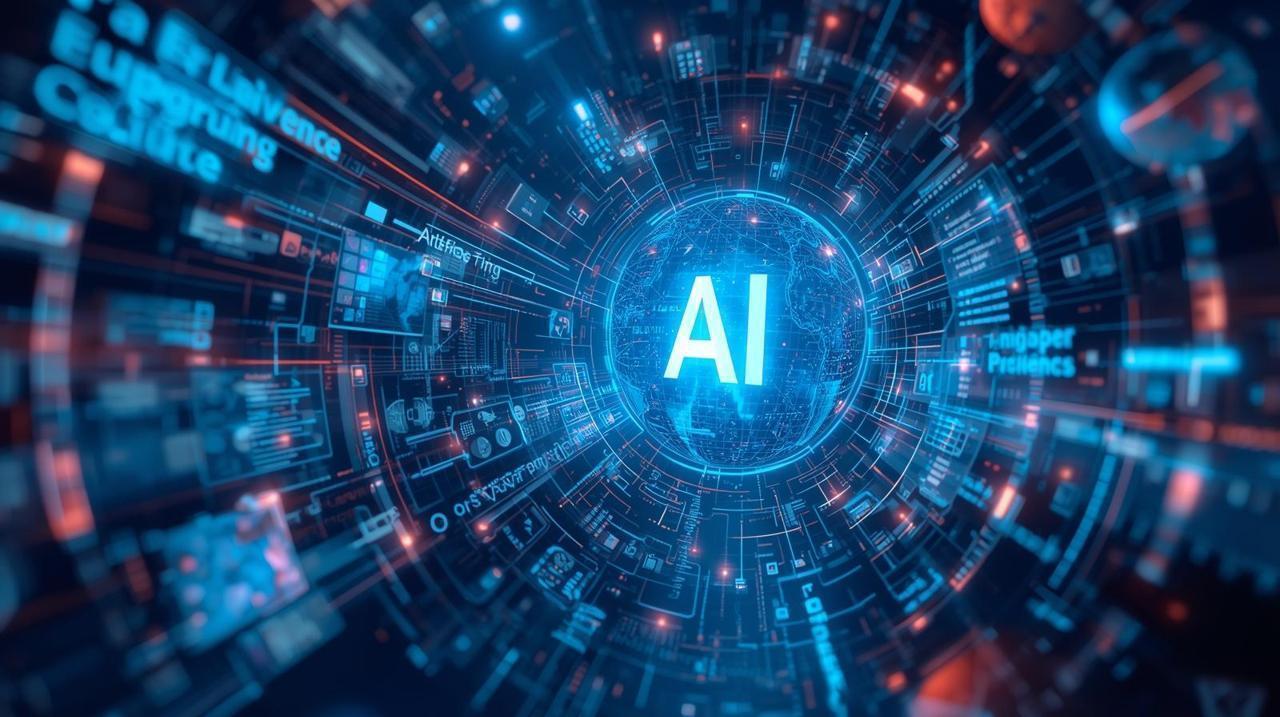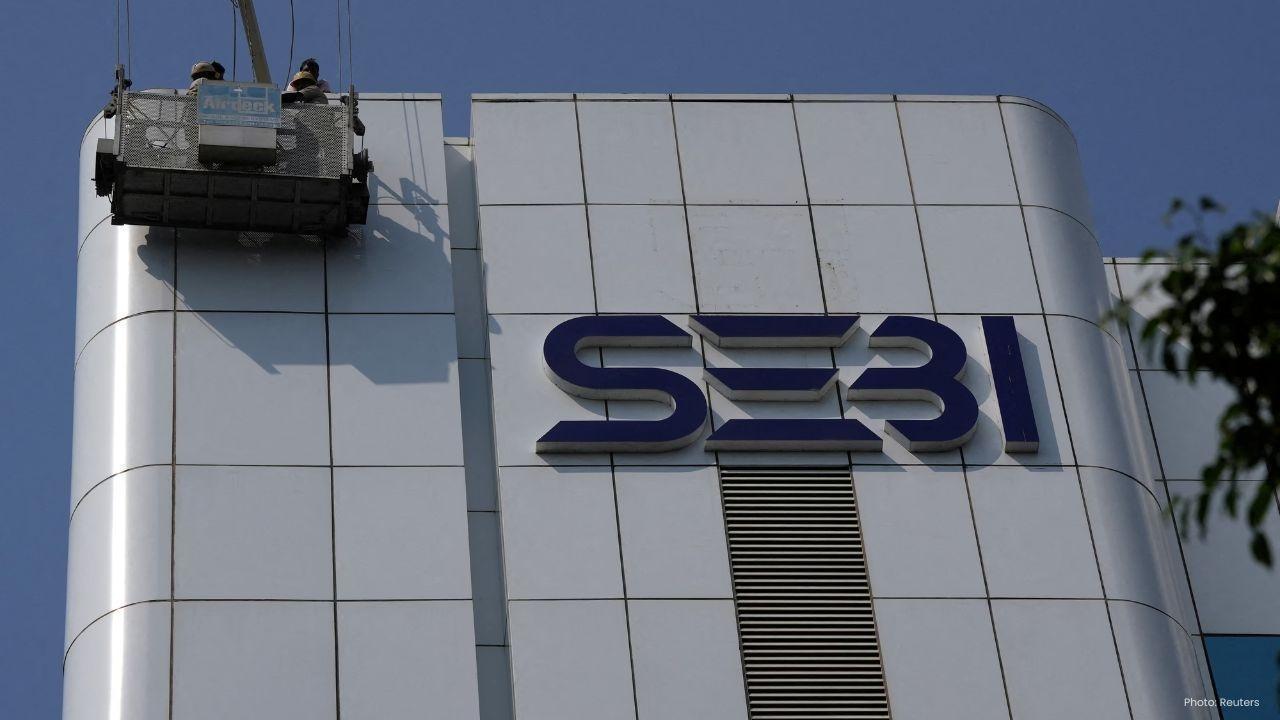
Post by : Sami Al-Rahmani
Artificial Intelligence (AI) has transitioned from concept to integral reality. Daily interactions with AI happen effortlessly—from querying Siri about the weather to receiving tailored recommendations from Netflix, AI now shapes many aspects of our ongoing routines.
As we approach 2025, the growth of artificial intelligence is remarkable, affecting our work, education, communication, and health management. It's revolutionizing industries and altering the dynamics between humans and technological systems. Here’s an exploration of how AI enhances daily living, fostering a more efficient and interconnected world.
AI fuels numerous applications we depend on every day. Utilizing Google Maps for traffic updates, commanding Alexa to play your favorite song, or unlocking smartphones with facial recognition exemplifies AI’s unseen assistance.
These technologies learn from user activities, offering customized experiences. Platforms such as Netflix and Spotify adapt to reflect individual tastes, while smartphones optimize camera functions and conserve battery life in tune with usage trends.
By analyzing vast quantities of data and predicting user preferences, AI simplifies daily tasks seamlessly.
AI's most significant impact appears in healthcare, where it dramatically changes diagnosis, treatment, and patient wellness.
Today, AI systems proficiently analyze medical imagery, such as X-rays and MRIs, often identifying health issues sooner than conventional techniques. Healthcare professionals utilize predictive technologies to assess potential health risks and suggest preventive measures.
Virtual health assistants guide patients through medication management, appointment scheduling, and offering mental wellness assistance. Moreover, AI enhances hospital efficiency by anticipating patient inflow and optimizing care strategies.
This results in timely, precise, and accessible healthcare that conserves both time and lives.
The education sector also witnesses significant change driven by AI. Personalized and adaptive learning technologies complement traditional teaching by catering to each learner’s unique requirements.
AI solutions identify students' strengths and areas for improvement, providing tailored exercises and study materials. Virtual tutoring services enable personalized guidance, allowing learners to progress at their own pace. Educators benefit from AI through automated grading and tracking tools, enabling them to focus more on mentorship.
This paradigm shift fosters a more flexible and effective learning environment for students globally.
Artificial intelligence streamlines business dynamics, empowering organizations to make data-informed decisions and enhance operational efficiencies. AI is leveraged across several domains, including customer service, marketing, logistics, and finance.
Chatbots promptly address routine customer inquiries, allowing human agents to tackle complex matters. Marketing teams harness AI analytics to predict trends, curate personalized marketing strategies, and amplify customer engagement. In finance, AI detects fraud, streamlines investments, and safely automates transactions.
This notable automation reduces monotonous tasks, granting employees the freedom to channel their creativity and strategic thinking. Companies employing AI gain a distinct competitive edge and bolster their profitability.
AI has significantly influenced communication themes. Many social media platforms depend on AI for feed organization, connection recommendations, and detecting inappropriate materials.
The content displayed during scrolling on social media isn’t coincidental—it’s curated by AI algorithms analyzing interactions, preferences, and behaviors. AI-language translation tools facilitate seamless multilingual communication, bridging global divides.
While these advancements showcase convenience, concerns regarding privacy and algorithm biases must be acknowledged. Responsible innovation is key as AI continues refining our communication methods.
Smart homes epitomize AI’s practical benefits in our lives. AI-integrated devices are redefining how we inhabit our spaces, prioritizing comfort, safety, and efficiency.
Smart thermostats adjust ambient temperatures based on user behavior; AI-powered security systems recognize familiar faces and alert homeowners to irregular activities. Voice assistants control lighting, appliances, and grocery schedules using simple commands.
These advancements amplify energy efficiency, enhance safety, and simplify day-to-day life. Future homes aren't merely connected; they’re equipped to intelligently respond to our evolving needs.
Artificial intelligence is carving the future of transport. Self-driving vehicles utilize AI to navigate conditions, identify hazards, and execute immediate decisions to prioritize safety.
Navigation applications like Google Maps harness real-time AI capabilities to suggest optimal routes and predict traffic congestions. Additionally, predictive maintenance influenced by AI ensures vehicles and aircraft operate safely and effectively.
AI is pioneering smart traffic management solutions, easing congestion and enhancing fuel efficiencies, culminating in safer and more sustainable travel experiences.
Financial management is simpler than ever, courtesy of AI-driven tools providing real-time insights and automation. Many banking applications utilize AI to classify expenditures, signal saving chances, and deliver customized investment advice.
AI algorithms detect fraudulent actions in seconds, curbing potential financial setbacks. Virtual financial advisors assist individuals in making wise choices about budgeting and investments. Empowering users to manage their finances while minimizing human error underscores AI's role in finance.
AI ensures secure, accessible, and intelligent financial decision-making for individuals and enterprises alike.
AI is reshaping the entertainment and creative spheres. It aids not just in content consumption but in content generation as well.
Music services employ AI for song creation and track remixes, while artists utilize AI tools in crafting digital art. Gaming experiences have become more immersive, with AI-powered characters adeptly reacting to player choices. Streaming platforms rely on AI to suggest personalized viewing options, ensuring endless entertainment.
Even in filmmaking, AI plays a vital role in enhancing visuals, video editing, and scene simulations, merging creativity with innovation and expanding artistic horizons globally.
While artificial intelligence bestows remarkable conveniences, it equally introduces ethical challenges that merit thoughtful address.
Large-scale data reliance for AI systems raises significant questions of privacy and protection. Moreover, automation may lead to job loss in various sectors, necessitating workforce reskilling. Algorithmic bias remains another concern—AI systems can unintentionally mirror human biases within their training data.
It is crucial for organizations to adopt responsible AI practices that emphasize accountability, inclusivity, and human oversight, ensuring a trusted partnership between AI technology and society.
As we glance into the future, the role of AI is set to rise continuously. In the years ahead, AI is poised to drive significant advancements in healthcare, education, environmental research, and sustainable energy.
The early instances of AI fostering intelligent urban initiatives and assisting healthcare providers in performing intricate surgeries remotely showcase its potential. Evolving from task execution to empowering human capabilities—enhancing creativity and productivity—is the anticipated trajectory of AI.
The future encapsulates a collaborative dynamic between humans and AI: united efforts to achieve unprecedented milestones.
Artificial Intelligence has integrated into the very fabric of modern life, evolving from speculative science to our quotidian experiences. Whether facilitating shopping, communication, education, or workplace dynamics, AI's impact is pervasive and profound.
As we navigate the technological landscape, we must remain vigilant about ethical considerations and privacy issues—recognizing AI's ability to enrich human existence is vital. Embracing AI thoughtfully can bridge human intelligence and technological advancement, enabling a bright future. AI aims not to dictate our tomorrow but rather assist in shaping it—highlighting that as machines become increasingly sophisticated, humanity shines brighter.










Rodgers Declares Intent to Retire with Green Bay Packers
Aaron Rodgers confirms he will retire as a Green Bay Packer, reflecting on a storied 18-year career

Hamilton Mourns His Beloved Bulldog Roscoe With Fan Support
Lewis Hamilton reflects on the loss of his bulldog Roscoe, finding solace in heartfelt fan tributes

Norris Laughs Off Red Bull's Tape Controversy at the US Grand Prix
Lando Norris finds humor in Red Bull's tape incident during the US GP, viewing it as an amusing dist

Alex Vesia Absent from World Series Due to Family Matter
Dodgers pitcher Alex Vesia steps away from the World Series for a family situation, with hopes for a

Bo Bichette's Possible Participation in World Series Remains Uncertain
The Blue Jays monitor Bo Bichette’s condition closely as they strategize for the World Series, weigh

Sharks Triumph Over Rangers 6-5 in Overtime as Celebrini Shines with Hat Trick
Macklin Celebrini's hat trick propels Sharks past Rangers 6-5, marking their first win of the season